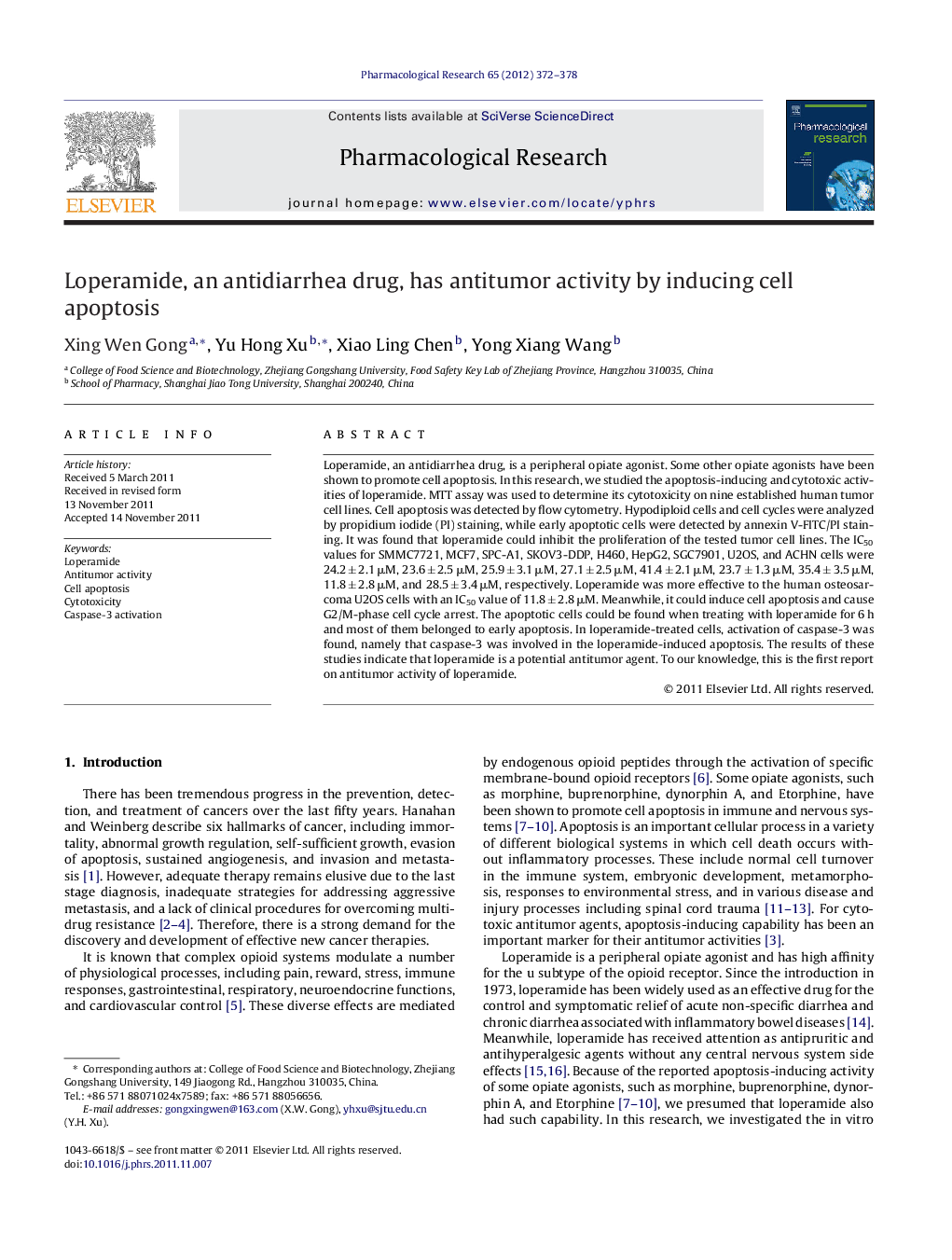| Article ID | Journal | Published Year | Pages | File Type |
|---|---|---|---|---|
| 2561629 | Pharmacological Research | 2012 | 7 Pages |
Loperamide, an antidiarrhea drug, is a peripheral opiate agonist. Some other opiate agonists have been shown to promote cell apoptosis. In this research, we studied the apoptosis-inducing and cytotoxic activities of loperamide. MTT assay was used to determine its cytotoxicity on nine established human tumor cell lines. Cell apoptosis was detected by flow cytometry. Hypodiploid cells and cell cycles were analyzed by propidium iodide (PI) staining, while early apoptotic cells were detected by annexin V-FITC/PI staining. It was found that loperamide could inhibit the proliferation of the tested tumor cell lines. The IC50 values for SMMC7721, MCF7, SPC-A1, SKOV3-DDP, H460, HepG2, SGC7901, U2OS, and ACHN cells were 24.2 ± 2.1 μM, 23.6 ± 2.5 μM, 25.9 ± 3.1 μM, 27.1 ± 2.5 μM, 41.4 ± 2.1 μM, 23.7 ± 1.3 μM, 35.4 ± 3.5 μM, 11.8 ± 2.8 μM, and 28.5 ± 3.4 μM, respectively. Loperamide was more effective to the human osteosarcoma U2OS cells with an IC50 value of 11.8 ± 2.8 μM. Meanwhile, it could induce cell apoptosis and cause G2/M-phase cell cycle arrest. The apoptotic cells could be found when treating with loperamide for 6 h and most of them belonged to early apoptosis. In loperamide-treated cells, activation of caspase-3 was found, namely that caspase-3 was involved in the loperamide-induced apoptosis. The results of these studies indicate that loperamide is a potential antitumor agent. To our knowledge, this is the first report on antitumor activity of loperamide.
Graphical abstractFigure optionsDownload full-size imageDownload as PowerPoint slide
